Selling a business is a complex process that requires meticulous planning and strategic execution. Pre-sale preparation is one of the most critical stages, as it ensures your business is well-positioned to attract serious buyers, achieve maximum value, and minimize disruptions. This guide highlights what sellers can expect from working with experienced business brokers during this process, from evaluating your business’s worth to maintaining confidentiality and navigating negotiations.
Evaluating Your Business Value
Determining your business’s value is one of the most critical steps in preparing for a sale. Without an accurate valuation, you risk setting unrealistic expectations or undervaluing the asset you’ve worked so hard to build.
A clear understanding of your business’s worth builds credibility with buyers, facilitates smoother negotiations, and ensures a successful transaction. Experienced business brokers employ their expertise, resources, and industry knowledge to help sellers arrive at a valuation that reflects both market realities and growth potential.
Key Factors Affecting Valuation
Valuing a business requires a detailed assessment beyond financial statements. A comprehensive valuation considers operational efficiency, market position, and intangible assets that contribute to long-term success. Business brokers use a structured approach to determine how various elements influence the final sale price.
Financial Performance
A business’s financial strength is one of the most critical valuation components. Buyers seek businesses with steady revenue, manageable expenses, and strong cash flow. Brokers assess several key financial indicators to determine stability and growth potential:
- Revenue Trends – A history of consistent or increasing revenue reassures buyers of predictable income streams.
- Profit Margins – Higher margins indicate efficient operations and the potential for scalability.
- Cash Flow Management – Positive cash flow ensures the business can meet obligations and reinvest in growth.
Financial health plays a crucial role in valuation, but it must be assessed alongside market conditions, operational structure, and business-specific factors that influence long-term profitability.
Market Position
A solid market position significantly boosts your business’s perceived value. Business brokers evaluate the size and loyalty of your customer base, as a strong and engaged clientele is a clear indicator of market strength.
They also assess your brand’s reputation and industry recognition, which contribute to its desirability. Additionally, brokers identify key competitive advantages such as exclusive contracts, proprietary products, or a strategically advantageous geographic location. These elements highlight the business’s unique appeal and its ability to thrive in a competitive market.
Industry Trends
A comprehensive understanding of industry dynamics is crucial in evaluating a business’s potential. Business brokers analyze market growth opportunities and emerging trends, particularly in evolving sectors like technology and manufacturing.
They assess the impact of regulatory changes and technological advancements on operations and demand, ensuring the business is well-positioned for future challenges. Brokers also evaluate the business’s adaptability, highlighting its resilience and readiness to leverage new opportunities in a changing landscape.
Choosing the Right Business Broker
The decision to partner with the right business broker can determine the success of your sale. A skilled broker brings industry-specific expertise, an established network of qualified buyers, and the tools to ensure a smooth, efficient process. Beyond just matching buyers and sellers, they act as strategic advisors, protecting your interests and maximizing the value of your business.
Questions to Evaluate a Broker’s Expertise
Choosing a business broker requires careful consideration. Asking the right questions ensures you select someone with the skills and track record to deliver results. Some key questions to ask include:
- “What experience do you have with businesses in my industry?” A broker’s industry knowledge is vital, as they need to understand the nuances of your sector to position your business effectively.
- “Can you provide case studies of successful transactions?” Reviewing past successes helps gauge their ability to close deals and deliver favorable outcomes.
- “How do you ensure confidentiality and protect sensitive information?” This highlights the broker’s processes for safeguarding your business details throughout the sale.
These questions reveal the broker’s qualifications and provide insight into their communication style and professionalism, ensuring they align with your expectations.
Importance of Industry Specialization
The complexities of each industry demand specialized knowledge, making it essential to choose a broker familiar with your sector. A generalist broker may lack the insight needed to address industry-specific challenges, while an experienced industry-focused broker can bring a significant advantage.
- Manufacturing Business Broker: Selling a manufacturing business involves understanding operational intricacies, supply chain management, and production efficiency. A specialized broker ensures these factors are properly evaluated and presented to potential buyers.
- Construction Broker: A construction broker navigates unique financial and operational aspects for project-based businesses, such as incomplete contracts and long-term project timelines. Their expertise ensures that buyers appreciate the business’s full value.
- Technology Broker: Intellectual property and innovation take center stage with technology businesses. A technology broker knows how to evaluate proprietary systems, software, or patents, positioning these assets as critical value drivers.
Working with a broker who understands your industry ensures that your business is accurately represented, increasing the likelihood of finding the right buyer and achieving a successful sale.
Preparing Financial and Operational Documents

Comprehensive and well-organized financial and operational documentation is a cornerstone of a successful business sale. These records provide potential buyers with the clarity and confidence they need to make informed decisions.
Business brokers play a vital role in helping sellers compile and refine this information to ensure accuracy and transparency. This preparation showcases the business’s current health and highlights its potential for future growth, making it more appealing to serious buyers.
Financial Documentation Essentials
Buyers look for a detailed financial overview during the evaluation process. Brokers assist sellers in presenting their financials in a way that is clear, concise, and reflective of the business’s true profitability.
Key financial and Operational documents include:
- Profit and loss statements, balance sheets, and tax returns are foundational documents that provide a snapshot of the business’s financial history and stability.
- Cash flow projections: Buyers want to understand future earning potential. Brokers help sellers create projections that highlight opportunities for growth while remaining realistic.
- Recasting financials: Brokers often adjust for owner-specific expenses, such as personal perks or non-recurring costs, to present a more accurate view of the business’s profitability.
- Employee roles and organizational structure: Clear documentation of team responsibilities, leadership dynamics, and any key employees who drive business operations. This ensures buyers understand the human capital they are acquiring.
- Vendor and supplier agreements: Continuity in the supply chain is crucial for maintaining operations. Brokers ensure these agreements are documented and ready for buyer review.
This detailed preparation ensures that buyers have the information they need to evaluate the business’s financial health, increasing trust and credibility in the negotiation process.
Marketing Strategies to Attract Qualified Buyers
Effective marketing is crucial to attracting serious buyers while safeguarding your business’s confidentiality. Business brokers excel in designing targeted strategies showcasing your company’s value while protecting sensitive information. By leveraging their expertise, brokers can craft campaigns that connect with the right audience, highlighting your business’s unique strengths and opportunities.
Developing a Comprehensive Business Profile
A well-structured business profile is essential for attracting serious buyers. It provides a clear overview of your company, including its history, mission, and core strengths. Brokers craft this profile to highlight key differentiators, such as proprietary products, long-term customer relationships, or exclusive contracts, making your business more appealing in the market.
Additionally, brokers emphasize growth potential by showcasing market trends, expansion opportunities, and operational scalability. Whether it’s a technology broker highlighting innovation or a manufacturing business broker presenting production capabilities, a strong business profile positions your company as a valuable investment.
Targeting the Right Buyer Pool
Finding the right buyer goes beyond listing a business for sale. Brokers strategically connect with financially qualified buyers who align with the business’s long-term potential.
- Exclusive Buyer Networks: Brokers tap into industry-specific databases and professional connections to reach serious buyers with proven track records.
- Confidentiality and Targeted Outreach: Brokers protect sensitive business details while sharing key insights to attract interest from vetted buyers.
- Competitive Bidding Strategy: Generating multiple offers strengthens the seller’s position, creating demand and driving better deal terms.
By focusing on the right buyers rather than broad, unfocused marketing, brokers ensure a smoother sale, a higher valuation, and a more strategic transition for the business.
Managing Buyer Due Diligence and Securing Favorable Terms
The buyer due diligence and negotiation stages are critical in determining the success of a business sale. These phases involve rigorous scrutiny of your business and careful alignment of deal terms with your goals. Expert business brokers manage these processes, ensure transparency, mitigate risks, and advocate for favorable outcomes.
Buyer Due Diligence Support
Due diligence is a critical step where buyers assess a business’s financial, operational, and legal standing. Without proper guidance, this process can become overwhelming, leading to unnecessary delays or lost deals. Brokers streamline due diligence by acting as the primary point of contact, ensuring buyer inquiries are addressed accurately and efficiently.
They also safeguard sensitive information by using secure platforms, granting access only to authorized individuals. Additionally, brokers proactively identify and resolve potential concerns, such as financial inconsistencies or operational inefficiencies, to maintain buyer confidence and keep the transaction on track.
Negotiating Favorable Terms
Negotiations are about more than just agreeing on a price—they involve structuring a deal that satisfies both parties while aligning with your long-term goals. Experienced business brokers bring a strategic edge to these discussions, ensuring that you secure the best possible terms.
Key ways brokers help during negotiations include:
- Advocating for optimal pricing: Brokers use their market expertise and valuation insights to ensure you receive a fair and competitive price for your business.
- Resolving potential conflicts: By acting as intermediaries, brokers manage differing expectations between buyers and sellers, finding compromises that work for both sides without sacrificing your key objectives.
- Offering strategic deal structures: Brokers provide advice on options like earn-outs, installment payments, or seller financing. These arrangements can make your business more appealing to buyers while ensuring you achieve your desired outcomes.
Through their negotiation expertise, brokers create a balanced, mutually beneficial agreement that maximizes your business’s value while setting the foundation for a smooth transition to new ownership.
Ensuring Confidentiality Throughout the Process

Maintaining confidentiality is a cornerstone of any successful business sale. Protecting sensitive information ensures that operations continue without disruption, employees remain reassured, and competitors are kept at bay. Professional business brokers implement robust confidentiality measures, providing sellers with peace of mind while fostering trust with potential buyers.
Non-Disclosure Agreements (NDAs)
One of the most effective tools for safeguarding information is legally binding non-disclosure agreements. These agreements are essential for limiting who has access to sensitive business details and ensuring that such information is handled responsibly.
Here’s how brokers utilize NDAs to protect your business:
- Restricting access to sensitive data: NDAs ensure that only vetted, serious buyers can review proprietary information such as financial records, trade secrets, and operational details.
- Safeguarding critical assets: From customer databases to supplier contracts, brokers ensure that your most valuable information remains secure throughout the sale process.
- Building trust: Requiring NDAs signals professionalism and commitment, fostering confidence between both parties while setting clear boundaries for the transaction.
By enforcing NDAs, brokers create a controlled environment that minimizes risks and protects your business’s competitive edge.
Partnering with a Broker for Pre-Sale Success
Brokers guide sellers through key steps such as pricing strategy, financial preparation, and buyer engagement, reducing risks and improving deal outcomes. At Lake Country Advisors, we focus on making the sales process efficient and profitable, allowing business owners to transition smoothly while securing the best possible terms.
Ready to sell your business? Contact Lake Country Advisors today for expert guidance and a free consultation. Let us help you achieve the best results for your business sales.





